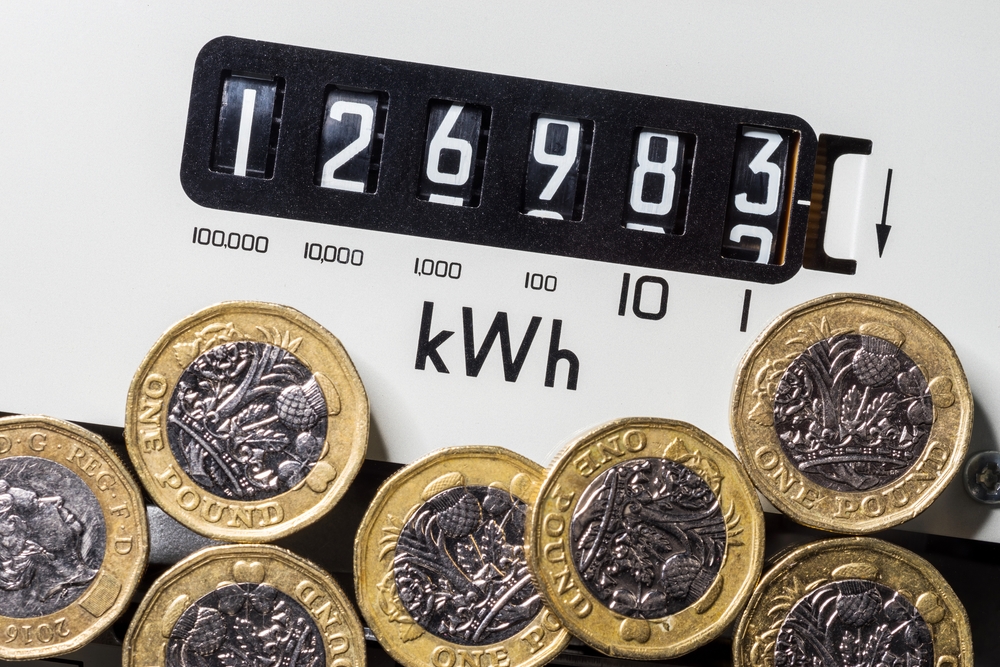
Understanding Your Energy Contract: A Step-by-Step Guide
Are you seeking to streamline your spending on business energy contracts? Here is how to identify opportunities for financial savings with these deals.
View Article
If your company currently holds an energy contract sourced through a broker, you should consider whether you could be overpaying on energy broker commissions.
Companies’ struggles with energy bills have been well-publicised, with the receding of the COVID-19 pandemic and the outbreak of Russia’s war with Ukraine having sent energy costs soaring.
However, in early 2023, the UK Government rolled back a support scheme aimed at making non-household energy bills easier to manage. Around the same time, many fixed-rate energy contracts expired.
These combined factors have led analysts at the consultancy Cornwall Insight, to suggest that many companies could be faced with a 133% increase in energy bill costs as a result.
If you are a business owner, there are several steps you might have taken in the hope of safeguarding your company’s finances as much as possible. For example, you might have:
However, even after working hard to streamline your organisation’s financial outgoings on energy, you could understandably still face difficulty in making ends meet.
It doesn’t help that, compared to households, businesses can have much more to power — especially if they run multiple locations, such as individual offices and retail stores, across the country.
Businesses can also be worse off than households due to:
Your business might not even be eligible to capitalise on any of the VAT and CCL exemptions available to certain companies.
Still, whether you are currently tied into an energy contract for the long haul or in a position to soon switch to a new deal, you ought to know how business energy brokers can also add to costs.
It is important not to confuse energy brokers with energy suppliers. Unlike suppliers, the former neither own nor distribute energy — and neither are they able to sell energy to your business directly.
Instead, energy brokers act as intermediaries between energy suppliers and their clients. In theory, these brokers are meant to peruse the energy market on your behalf, compare a wide range of energy deals, and help you to land the one that best meets your specific needs.
Just as there are residential energy brokers aimed at helping households to select from numerous energy contracts, business energy brokers offer the same service to companies.
As much as you will want to secure the best-value energy deal possible for your organisation, you might have insufficient time to thoroughly peruse the available options yourself — especially since, as the saying goes, time is money.
This begins to explain the rationale for tasking a business energy broker with sourcing a cost-effective deal for you. These brokers will take into account energy contracts offered by small and large suppliers alike, including:
When you first engage a business energy broker, you can specify your company’s particular energy needs. The broker will then look for energy contracts that would meet these needs.
The idea of saving time and money is not the only reason why the prospect of approaching an energy broker can be highly enticing. There is also the appeal of being able to take advantage of their specialist experience and expertise.
These brokers are familiar with various ins and outs of the energy market — and, as a result, can provide you with relatively overlooked tips and tricks for getting the most out of your energy expenditure.
There is also the fact that corporate energy brokers are typically, as businesses, separate from the energy suppliers with which they work.
You could therefore be reassured by the idea that you can look forward to receiving impartial advice about which of the energy contracts the broker unearths for your consideration would actually be the most suitable.
That’s the theory, anyway. In practice, the particular energy deal the broker recommends you take might not quite be the one that would genuinely best fit your company…

If you are looking for a genuinely cost-effective business energy package, there are good reasons for you to believe that you will be able to get your hands on it by drawing upon the services of a business energy broker.
Here are several compelling reasons why pursuing this strategy can work out well:
Given how much you could gain financially from turning to a business energy broker, you might wonder how such a broker actually makes money.
Usually, with each business energy contract a broker sells, they generate revenue through a commission that has been placed on the contract.
Brokers and suppliers enter into an ‘Introduction Agreement’, where the supplier agrees with the broker to add an element of commission on top of the unit rate. This does not always mean that the broker has bought energy at a lower rate from the supplier.
The broker can therefore add a commission to the deal without strictly jeopardising its status as the energy market’s best-value contract for what a given client specifically requires.
Imagine a broker offering you a corporate energy contract where the rate Is 20p per kWh of energy consumed. If you accept this offer, the bill will indicate that your payments on this contract are all going to the supplier rather than the broker.
The supplier will likely channel some of this monetary intake to the broker. This cut is what is known as — yes — the commission.
If we look back at the above-mentioned example of a business energy deal a broker could offer you, the commission fees you pay could be at a rate of something along the lines of 2p per kWh of energy you use.
Start My Claim
With any given business gas or electricity contract a broker offers you, how can you be certain how much you would pay in compensation fees?
It is actually a legal requirement for the broker and the supplier in this situation to let you know the amount of commission they would be handed due to arranging the contract for you.
Nonetheless, many brokers and suppliers might neglect to inform you of this commission upfront. Instead, they might say that the service is free of charge.
Alternatively, they may claim that the energy supplier responsible for the contract pays them a fee on the condition that the contract is taken up by the broker’s client.
In neither instance would the broker be being entirely open and honest with you about the commission that applies. It is crucial to underline that a business energy broker deliberately mis-selling an energy contract Is breaking the law. The suppliers are also under a legal obligation to disclose the amount of commission they are paying to the brokers.
If either the broker or supplier fails to do this, they are breaking the law.
You might wonder why so many brokers are deceitful in this way, but one simple reason why is that they know — or at least assume — that they can get away with it. This particular part of the UK energy Industry is largely unregulated.
Fortunately, though, Ofgem has increasingly wisened up to this shady practice. In 2021, this UK energy regulator indicated that it would force business energy brokers to routinely disclose their full commission fees in energy deal offers.
However, if your business is already on an energy contract originally obtained from a broker, how can you discern whether you are overpaying on energy broker commissions?
It would be advisable for you to track your company’s monthly payments and energy consumption on this contract. Over time, you could notice that your financial outlay appears suspiciously high in light of your energy expenditure.
In addition, As your company’s energy contract with its current supplier nears expiry, you could realise that many alternative deals on the market actually pledge much more return for the same amount of money.
All in all, there are many different scenarios where organisations could potentially have strong grounds for making business energy claims with help from a legal firm like Business Energy Claimline. Here are some potential warning signs…
Of course, before you can reliably ascertain whether this is actually the case, you need to know what that going rate is.
How much your business needs to spend on energy on an ongoing basis depends on a number of factors, including:
In any case, though, you would have good reason to be suspicious if you appear to be spending more on energy compared to other, similar businesses and you are struggling to figure out precisely why.
It’s certainly not unheard of for a broker to try hiding their commission deeply within costs they might claim relate specifically to energy expenditure alone.
For this reason, it would be wise for you to look up your current contract’s expiry date and make a note of it — ideally, somewhere you are likely to often see it and be reminded of it, such as on a wall-mounted calendar or a fridge door.
You could then plan well ahead of that cut-off point to see what other energy deals are available to you and whether it would be financially worthwhile for you to switch to one of them.
If your current energy prices seem peculiarly high, you don’t want to end up in a situation where the contract Is automatically renewed.
Many businesses could too easily be lumbered with such contract renewals — and be required to pay charges to terminate the energy deals in question.
As we acknowledged earlier in this article, it is attractive to think that, as business energy brokers are usually separate from suppliers, the former should be willing to recommend specific deals to you in a genuine unbiased fashion.
Still, you should be wary of assuming that all business energy brokers actually work like this. One distinct possibility is that the broker you do engage just pushes you towards the deal that would best strengthen their profit margin.
It doesn’t necessarily follow that this deal will also be the one that would serve you, the client, best from a value-for-money perspective. How can you tell when a broker is offering you a contract that indeed isn’t the best in this sense?
It can be tricky to tell for definite, but you ought to be hesitant if the broker advocates an energy contract longer than you thought you needed.
Some brokers might be working under a system where the longer the contract, the higher the commission they would earn for selling it.
Of course, if you sign up for a business energy contract that is lengthier than is strictly necessary for your business, there could be unwelcome repercussions for your long-term corporate finances, as you would be left with less flexibility.
Alas, some brokers could remain aware of this but, in pursuit of their own financial objectives, still encourage you to take up that longer contract.
All of this begs the question: when it comes to a business energy contract, how long is too long? The answer will largely depend on your company’s specific energy needs, but a business energy contract can typically last 1-2 years.
This is the kind of length you can typically expect with a business energy deal — and also the kind of length it could easily be renewed for if you allow the contract to elapse without you before arranging a switch to a different contract.
Conversely, though, many poor-value energy supply deals offered by brokers to businesses have been found to span as many as 3-5 years. You should therefore exercise caution if your own business is offered a deal of such length.
If you do receive this offer, it doesn’t necessarily mean that it wouldn’t be right for your specific business. You should therefore ask the broker to explain to you at length why they are recommending this particular deal.
Non-domestic consumers tend to spend more than their domestic counterparts on electricity and gas.
A domestic consumer might also only have to source energy for one building. Even when households need power for additional buildings, like garages and garden rooms, this might not add excessively to the energy costs overall.
In contrast, a business — especially a major, big-name enterprise — can be responsible for running multiple buildings in disparate locations. Along with the company’s headquarters, there can also be numerous:
Of course, the exact nature of these additional buildings will depend on the nature of the company’s work. We have prepared business energy claims for businesses operating in the following especially power-Intensive sectors:
We should also note that, even if your business occupies serviced offices (otherwise referred to as managed offices or business centres), you might not strictly have been spared difficulties in securing affordable energy.
The Startups website defines a serviced office as “a workspace which comes ready-furnished, with internet and phone lines pre-connected and devices already equipped.”
However, your business might still use serviced offices where it has needed to arrange an energy supply — and to make this task easier, you might have utilised a broker-provided service that enabled you to source that supply speedily.
What we are trying to get at here is that if you run a business itself running multiple buildings, and many or all of these routinely use broker-provided energy, you could be paying a rather large amount of money for it.
Furthermore, the high number of these sites might not be the only culprit. It’s possible that the broker has hidden large commissions in what you are paying — in which case, you could be overpaying on energy broker commissions.
Why treat this as a sign that you could be overpaying on energy broker commissions? Well, because there has been word on the grapevine that some brokers have deliberately targeted organisations perceived as less sophisticated.
A broker offering a business energy contract is legally barred from purposefully hiding the amount of commission they would make on this contract.
Nonetheless, you need to remember that due to the lack of regulation aimed at preventing brokers and suppliers from stooping to this unethical practice, many brokers may still resort to it out of the belief that they would be able to get away with it.
Hence, these brokers could opt for what can be easily seen as a shameful and cowardly tactic: attempting to take advantage of the ‘little guys’. Here are examples of organisations that could potentially be targeted in this way:
One thing these organisations all have in common is that they could be particularly naïve about how to spot signs that they are overpaying on energy broker commissions or in danger of doing so.
For example, if you are a sole trader and have only recently started working for yourself for the first time, you might already have a lot to learn when it comes to the ins and outs of running a company in a financially streamlined manner.
This situation could leave you with little time to learn about more obscure aspects of self-employment — like making sure you are not caught out by business energy commissions that are larger than they really need to be.
Yes, you might know other tips and tricks for reining in your commercial spending on energy — but your know-how might not quite extend to identifying warning signs of inflated commissions tucked away inside figures on your energy bills.
Of course, as a result of thoroughly reading this article and absorbing its advice, you can potentially increase your chances of detecting wrongdoing on the broker’s part — and help yourself to take suitable legal action against that broker.
UK-based micro-businesses seeking energy contracts in the here and now can at least benefit from a recently introduced, Ofgem-imposed requirement.
This is that energy suppliers providing these businesses with energy contracts have to clearly specify, in these contracts’ terms and conditions, any money that is paid to third parties — such as, yes, business energy brokers.
However, what if your business took up a broker-provided corporate energy contract a long period of time ago and is still on that contract? In that case, it could help you if you think back to when you were first offered that deal.
In particular, you should try to remember whether the energy broker fully disclosed to you, in writing, how much money they would earn from this contract.
This money could include what remains, to this day, the current commission on the contract. What if you don’t actually remember the broker telling you about the attached commission upfront at the point of sale?
The reason why could be that the broker wasn’t open and transparent with you about that commission — and instead chose to try embedding it so seamlessly into the regular payments that you wouldn’t even realise the commission existed.
If you are truly struggling to recall a commission being mentioned as early as when you were offered the deal, you shouldn’t rule out the possibility that you might have been — and still are — overpaying on your business energy contract in the form of broker commissions.
At the same time, though, you should resist simply slamming on the panic button. Many business energy brokers act in good faith — and the broker you worked with might have only neglected to be entirely open with you about the commission because there wasn’t any strict regulatory requirement for them to do so.
Due to the various nuances and uncertainties of the situation, it would be invaluable for you to seek expert input on whether you could genuinely be eligible to make a business energy claim. That’s where we come in…
Start My Claim
Many businesses across the UK have undoubtedly gone through financially difficult times as a result of the COVID-19 pandemic and rising energy prices.
However, if you run one of these businesses, you need to keep in mind that help is still at hand, enabling you to draw upon valuable assistance as you endeavour to weather the economic storm.
For example, though the UK Government brought an end to the Energy Bill Relief Scheme — which subsidised electricity and gas prices for companies — in early 2023, the Energy Bills Discount Scheme has since been introduced for businesses.
This replacement scheme began in April 2023 and is set to run until March 2024. During the year-long period it is in place, the Energy Bills Discount Scheme will help firms via a £5.5bn support package.
To be eligible for support under the scheme, your company’s energy costs must be at least:
The Energy Saving Trust has outlined various discounts available through the Energy Bills Discount Scheme, along with easy-to-digest details covering eligibility criteria.
The UK Government has also unveiled plans to incentivise investment in low-carbon technologies in order to help secure the UK’s energy supply for the future.
With these decarbonisation plans, the UK Government has an eye on helping to rein in energy prices — especially as green energy sources tend to be less expensive than fossil fuel alternatives.
Nonetheless, it could be some time yet before the savings unlocked through the implementation of clean energy technologies trickle through to meaningfully reducing corporate energy bills.
For this reason, your business should think about what moves it could make in the here and now to deliver energy price reductions.
To this end, you ought to consider and investigate the possibility that you are overpaying on energy broker commissions. This would not be a simple thing for you to look into, which is why we urge you to seek our assistance in the matter.
Here at Business Energy Claimline, we have seasoned legal experts who can judge the credibility of your business energy claim — and all without charging you a penny. If we find you do have a strong claim, we can then help you to further it.

Naturally, the answer to this question largely comes down to your answer to another question: do you genuinely suspect that you may have been overpaying on energy broker commissions?
The latter question might be easier for you to address than you had anticipated. One reason is that the claim wouldn’t need to be for a business energy contract you currently hold.
It is perfectly possible to launch a business energy claim for a contract that you used to have but has since expired. We can assist with this claim, as well as one you initiate if you reckon you might be paying excessively on current commission fees.
With millions of enterprises across the UK having been mis-sold energy, your business could fall into this bracket much more easily than you might have assumed.
However, even if your business does use energy which you strongly suspect has been mis-sold, we can’t help with a legal claim relating to this if the business:
Knowing whether you are eligible to make a business energy claim with us is also about knowing what situations would rule you out of contention — and the above three scenarios detailed above are good examples.
Nonetheless, you should also educate yourself on what factors would make it likelier that you have Indeed been overpaying on energy broker commissions. You should therefore consider whether you:
We are at pains to emphasise that even if you do meet any of these three criteria, it could be very difficult for you to confirm entirely of your own accord that you genuinely have a claim for mis-sold business energy.
This is why we would urge you to apply for our free assessment service by filling out and submitting this contact form on our website.

There are many possible reasons for you to scrutinise your corporate spending. Perhaps your organisation is in the midst of a financial crisis, and this has forced you to urgently look for changes you could make in your firm’s financial structure.
As a result of the cost-of-living crisis, many articles have popped up online explaining how to save money. However, the focus in these pieces has largely been on trimming household, rather than necessarily business-related, spending.
Unfortunately, businesspeople are so pressed for time that they could too easily succumb to spending more money than is really necessary. This possibility hints at why many companies can benefit from asking third parties to help them.
One good case in point: you could ask us to investigate if you have noticed any of these signs that you might be overpaying on energy broker commissions:
Deciphering whether your business is actually overpaying on energy broker commissions and would consequently be eligible for a rebate payment is a task your firm could lack enough time to cost-effectively investigate for itself.
Fortunately, we offer a free service where we would be able to assess the matter on your organisation’s behalf. We could quickly report back to you about whether you do have a claim.
If we find that you do, we will offer you ‘no win, no fee’ additional services where we would be able to pursue that business energy claim — again, on your company’s behalf. You could utilise our expertise cost- and time-effectively — by giving us little more than your business name and key contract details.

Are you seeking to streamline your spending on business energy contracts? Here is how to identify opportunities for financial savings with these deals.
View Article
Do you run a church and believe you have been mis sold church energy by a broker? With our help, you can find out whether compensation might be available.
View Article
When it comes to the day-to-day strains of running a business, worrying about potentially mis-sold energy contracts shouldn’t be one of them. With a team of legal experts on hand to assess, build and submit a solid case, we’ve secured thousands of pounds in rebates on behalf of our clients.
Start My Claim